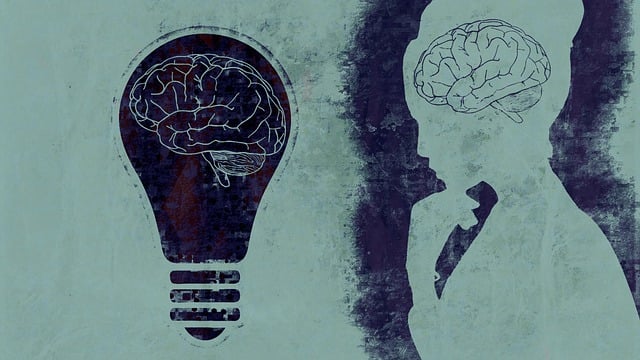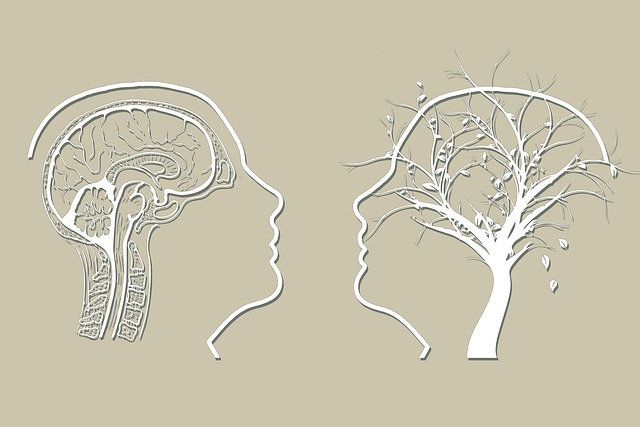Cultural sensitivity in mental healthcare is crucial for providing inclusive care, especially within diverse communities like Englewood's Polyamorous and Open Relationships groups. It involves adapting therapeutic practices to align with cultural values, beliefs, and perceptions of mental illness, fostering meaningful connections and open dialogue. By integrating this approach into programs like Stress Management Workshops and Mental Health Education, professionals improve accessibility and enhance outcomes. In Englewood Polyamorous and Open Relationships Therapy, tailored support respects diverse relationship models, emphasizing consent, communication, boundaries, and self-care strategies for improved well-being.
Cultural sensitivity is a cornerstone of effective mental healthcare, especially as societies become increasingly diverse. This article explores the crucial concept of cultural sensitivity in practice, with a specific focus on understanding and accommodating Englewood polyamorous and open relationships in therapy. We delve into strategies for culturally competent care, examining how professionals can navigate these unique dynamics to provide inclusive support. By fostering an awareness of cultural nuances, mental health practitioners can enhance their abilities to serve diverse populations.
- Understanding Cultural Sensitivity in Mental Healthcare
- The Impact of Englewood Polyamorous and Open Relationships on Therapy
- Strategies for Culturally Competent Practice in Mental Health Care
Understanding Cultural Sensitivity in Mental Healthcare

Understanding Cultural Sensitivity in Mental Healthcare involves recognizing and appreciating the diverse cultural backgrounds and beliefs of individuals seeking therapy. It is a crucial aspect that has gained significant attention, especially with communities like Englewood’s Polyamorous and Open Relationships groups, where unique relationship dynamics require tailored support. This sensitivity goes beyond basic awareness; it entails adapting therapeutic practices to align with clients’ cultural values, traditions, and perceptions of mental illness.
By embracing cultural sensitivity, mental healthcare professionals can foster meaningful connections with patients. This approach ensures that the emotional healing processes are not just effective but also respectful and inclusive. Moreover, it encourages open dialogue about cultural influences on mental health, enabling individuals to navigate their challenges within the context of their lives. The integration of this understanding into practices like Stress Management Workshops Organization or Mental Health Education Programs Design can significantly enhance accessibility and care, especially in diverse communities.
The Impact of Englewood Polyamorous and Open Relationships on Therapy

In recent years, there has been a growing recognition and interest in understanding Englewood polyamorous and open relationships within the context of therapy. This shift reflects a broader trend in mental healthcare to embrace diverse family structures and relationship dynamics. Therapists are increasingly encountering individuals and couples who identify as polyamorous or practice open relationships, challenging traditional therapeutic frameworks. These non-monogamous relationships present both unique opportunities and complexities that require nuanced approaches.
Therapy for Englewood polyamorous and open relationships involves navigating sensitive topics such as consent, communication, boundaries, and jealousy. Mental health professionals must be adept at facilitating open dialogue, encouraging self-reflection, and promoting healthy relationship dynamics. Incorporating social skills training and mental health awareness can help individuals within these relationships build resilience and strengthen their bonds. A thorough risk assessment is crucial to ensure the safety and well-being of all involved parties, fostering an environment where trust and vulnerability can thrive.
Strategies for Culturally Competent Practice in Mental Health Care

In the pursuit of culturally sensitive mental healthcare, professionals must embrace strategies that foster understanding and empathy across diverse cultural backgrounds. One effective approach is to incorporate self-care practices that promote emotional intelligence—both within the therapist and the client. This involves creating a safe, non-judgmental space where individuals feel empowered to express their unique experiences and perspectives. For instance, therapists can model empathy building strategies by actively listening, validating feelings, and reflecting cultural nuances during therapy sessions.
Englewood Polyamorous and Open Relationships Therapy, for example, requires a nuanced understanding of the dynamics within these relationships, including boundaries, communication styles, and unique challenges. By integrating this knowledge into their practice, therapists can provide tailored support that respects and embraces diverse relationship models. This culturally competent approach not only enhances therapeutic outcomes but also fosters a deeper connection between therapist and client, ultimately enriching the self-care journey for all involved.
In conclusion, cultural sensitivity is an indispensable aspect of mental healthcare practice. By understanding diverse cultural contexts, such as the unique challenges faced by individuals in Englewood’s polyamorous and open relationships therapy, professionals can provide more inclusive and effective care. Implementing culturally competent strategies ensures that every client, regardless of their background, receives respectful and tailored support, fostering better outcomes and stronger therapeutic alliances.













